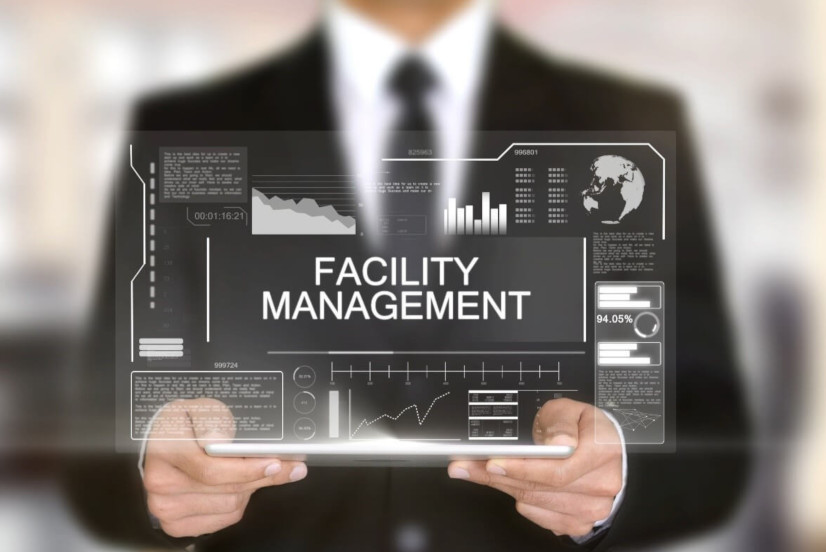Why Total Facility Management Is Important for Today’s Enterprises
Why Total Facility Management Is Important for Today’s Enterprises
Blog Article
Top Benefits of Total Facility Management for Streamlined Procedures
Total Facility Management (TFM) stands for a calculated method to boosting operational performance by integrating numerous services, such as upkeep and safety and security, under a unified management framework. The inquiry remains: what details advantages can companies harness from embracing TFM, and how might these benefits change their operational landscape?
Improved Functional Effectiveness
Boosted operational effectiveness is a key benefit of implementing total facility management (TFM) methods. TFM incorporates a detailed strategy to managing a facility's sources, procedures, and infrastructure, inevitably streamlining operations. By settling numerous services-- such as maintenance, cleaning, area, and protection management-- TFM enhances and reduces redundancies control among various operational features.
The combination of modern technology further enhances this effectiveness. Advanced facility management systems supply real-time information analytics, allowing facility managers to make educated decisions that improve workflow and resource allotment. Predictive maintenance techniques, for example, anticipate equipment failings prior to they happen, lowering downtime and expanding property life-span.
Furthermore, TFM promotes standardized procedures across numerous departments, making certain uniformity and top quality in solution shipment. This uniformity reduces operational disturbances and cultivates a much more collective workplace. As an outcome, workers can concentrate on their core responsibilities, driving performance and boosting general performance.

Expense Decrease and Cost Savings
Applying total facility management (TFM) not only improves functional efficiency yet also substantially adds to cost reduction and financial savings. By consolidating different solutions under a solitary management structure, companies can remove redundancies and improve procedures, therefore reducing operational expenses. TFM makes it possible for better procurement methods, permitting companies to work out bulk getting agreements with providers and provider, leading to lower prices.
Additionally, TFM stresses preventative upkeep, which minimizes unexpected break downs and prolongs the life expectancy of important tools. This aggressive strategy not just reduces repair costs but also boosts the dependability of facilitiess, ensuring undisturbed operations. In addition, energy effectiveness efforts, typically a crucial focus of TFM, result in substantial cost savings on energy costs, as facilitiess are enhanced for decreased energy intake.
Improved Source Management
Efficient resource management is a keystone of total facility management (TFM), making it possible for companies to enhance making use of their assets and labor force. By carrying out TFM methods, organizations can comprehensively assess their source allocation, ensuring that every property is used efficiently and effectively. This all natural method allows for the recognition of underperforming resources and the potential for reallocation or improvement.
Additionally, TFM helps with the assimilation of innovation for real-time monitoring of sources, which helps in predicting upkeep needs and protecting against expensive downtime. By leveraging information analytics, organizations can make informed decisions concerning resource release, eventually enhancing efficiency and reducing waste.
Additionally, TFM promotes a society of continuous enhancement, encouraging teams to routinely examine and refine their source management practices. Total Facility Management. This positive position not only decreases operational interruptions yet also promotes innovation, as workers are encouraged to suggest enhancements based upon their firsthand experiences with resource use
Streamlined Interaction Channels
In total facility management, structured communication channels play a crucial function in promoting cooperation and efficiency across groups. Reliable communication makes certain that all stakeholders, including facility supervisors, maintenance staff, and company, are lined up with organizational goals and functional needs. By developing clear lines of communication, teams can swiftly deal with worries, share updates, and execute solutions, therefore decreasing downtime and enhancing efficiency.
With centralized communication systems, details is easily available, enabling real-time updates on upkeep demands, source allotment, and job timelines. This openness not only minimizes misconceptions however likewise equips workers to make educated decisions rapidly. Structured communication promotes better coordination during emergencies, guaranteeing that all employees are notified and can respond immediately.

Raised Emphasis on Core Activities
A vital advantage of read more total facility management is the increased emphasis on core tasks, allowing organizations to focus on their primary service objectives - Total Facility Management. By outsourcing non-core features such as cleaning, security, and upkeep, business can reroute their sources and power towards tactical efforts that directly add to their competitive benefit and development
Total facility management integrates various operational jobs under a single umbrella, fostering efficiency and minimizing redundancy. This debt consolidation not just enhances processes but also boosts accountability, making certain that every element of the facility operates sympathetically without drawing away attention from what you could try these out absolutely matters-- core organization features.
In addition, this strategy allows workers to dedicate their effort and time Discover More to jobs that drive advancement and boost client fulfillment, instead of getting stalled by operational difficulties. With a dependable facility management companion taking care of daily operations, organizations can accomplish higher dexterity, react quickly to market modifications, and preserve a sharper emphasis on their goal.
Ultimately, increased emphasis on core activities leads to improved general performance, allowing organizations to enhance their market placement and fulfill their tactical goals better. - Total Facility Management
Verdict
Finally, Total Facility Management considerably enhances operational efficiency by settling important services and leveraging data analytics for informed decision-making. Expense reductions and improved resource management add to total savings, while streamlined interaction channels foster cooperation amongst stakeholders. By permitting organizations to focus on core tasks, TFM not just enhances productivity yet also strengthens market positioning. The integration of these benefits highlights the significance of TFM in attaining sustainable operational excellence.
Total Facility Management (TFM) represents a strategic technique to boosting functional performance by incorporating different services, such as maintenance and safety and security, under a unified management framework.Boosted functional performance is a main benefit of executing total facility management (TFM) strategies. Advanced facility management systems supply real-time data analytics, enabling facility supervisors to make educated decisions that improve operations and source allowance.Executing total facility management (TFM) not only enhances functional effectiveness but additionally dramatically contributes to cost decrease and cost savings.Effective source management is a cornerstone of total facility management (TFM), allowing organizations to maximize the use of their assets and labor force.
Report this page